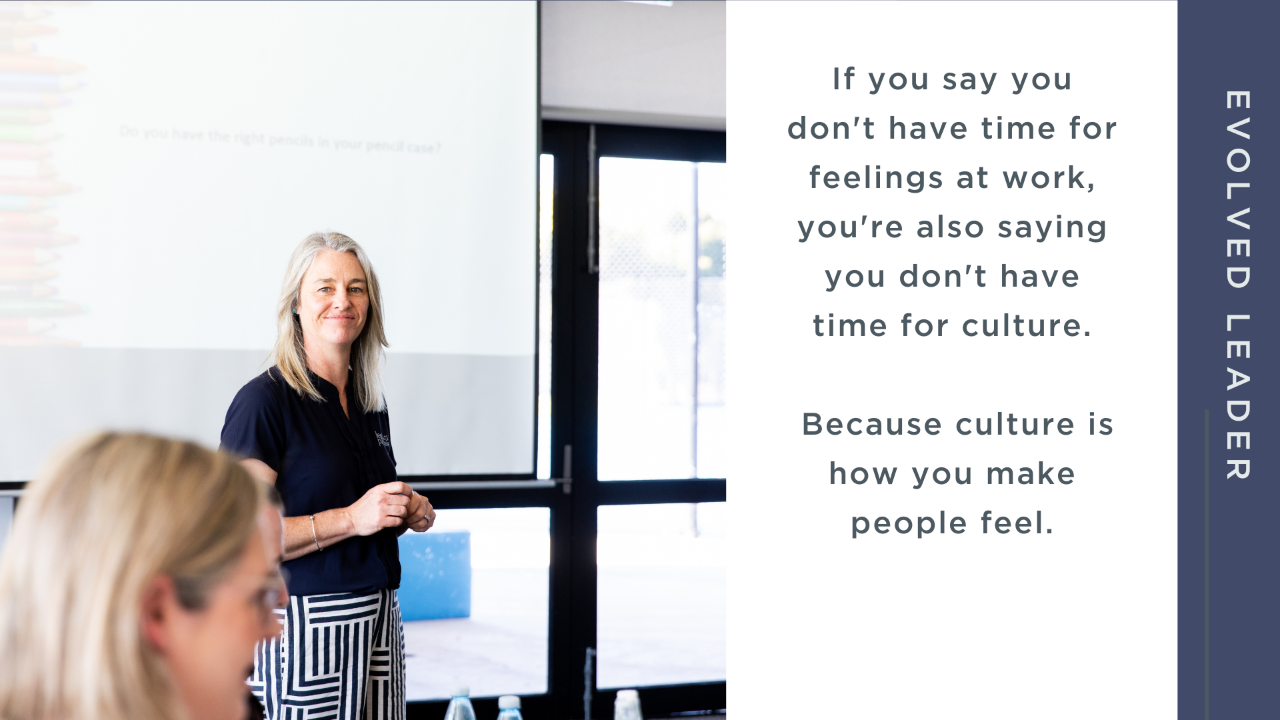Don’t Have Time for Feelings? It’s costing you more than you think
Apr 17, 2025
Do you ever feel like you need to keep your feelings or emotions under wraps at work? Are you aware of appearing or being labelled as too emotional? Most of us would avoid exhibiting behaviours that make us appear that way, but why?
A lot of us have a deeply held belief that “there’s no room for feelings at work”. If you disagree with this, ask yourself, how would it feel to cry in front of your colleagues, or openly show that at times you feel left out, undervalued or unheard. Would you allow yourself to do that?
If you find yourself focusing more on getting jobs done and never showing emotion, you can be creating an unspoken rule: keep emotions out of it, keep it professional, keep it moving.
The truth is, you are creating a culture, whether you’re intentional about it or not. And if you’re not tuning into how people are feeling—about their work, about their team, about their leaders—then you’re missing some of the most valuable data available to you.
The foundation of culture is all about.
Think about that for a second. how you make people feel
So if you don’t have time for feelings, you’re also saying you don’t have time for culture (which Im sure if you are a leader you would not agree with).
Here’s why we need to stop pretending emotions are irrelevant in the workplace:
We like to think we make decisions based on logic. The science tells us feelings drive behaviours. In reality, emotions are behind nearly every choice we make, especially when it comes to motivation, loyalty, and trust.
When we create a culture where people feel seen, valued, and safe, they show up differently. They take more ownership. They collaborate more openly. They stick around longer. These are all based on how people feel about being a part of your culture.
On the flip side, when we feel dismissed, disrespected, or invisible, that creates its own set of behaviours, including disengagement, quiet quitting and turnover.
The thing about feelings is that it takes more than a one-off interaction to build and maintain them. Its like starting at a new job, everyone might be really friendly on the first day, introduce themselves and show you around. Then they go back to being busy and if by a week later no one has taken the time to check in or say good morning, that initial feeling isn’t going to be sustained.
If you don’t have time for feelings, then what kind of culture are you creating by default?
Who’s thriving in that culture, and who’s quietly turning up but tuning out?
And more importantly: what does that tell you about what your team (and your leadership) actually values?
The easiest way to tune into feelings is to be just human.
Tapping into feelings doesn’t mean avoiding difficult decisions because of how they might make someone feel. It means leading with empathy. It means noticing when someone’s off and checking in. It means listening, really listening, when people speak up. And its being self aware enough to understand how your behaviours are affecting others.
You don’t need to have all the answers. You just need to create the kind of space where people know it’s okay to bring their full selves to work, and that doing so won’t be a liability.
If you're leading a team, managing a project, or shaping a business, you’re already influencing how people feel. Whether you’re intentional about it or not.
So if you’ve been telling yourself “we don’t have time for feelings,” consider flipping that script: I don’t have time to ignore them.
Because your people are your culture. And your culture is how you win, or how you quietly lose. Which one are you?
Get Evolved Leader delivered to your inbox every week to receive effective tools and practical ideas you can implement to develop your own leadership skills and style as well as those in your team.
We hate SPAM. We will never sell your information, for any reason.


